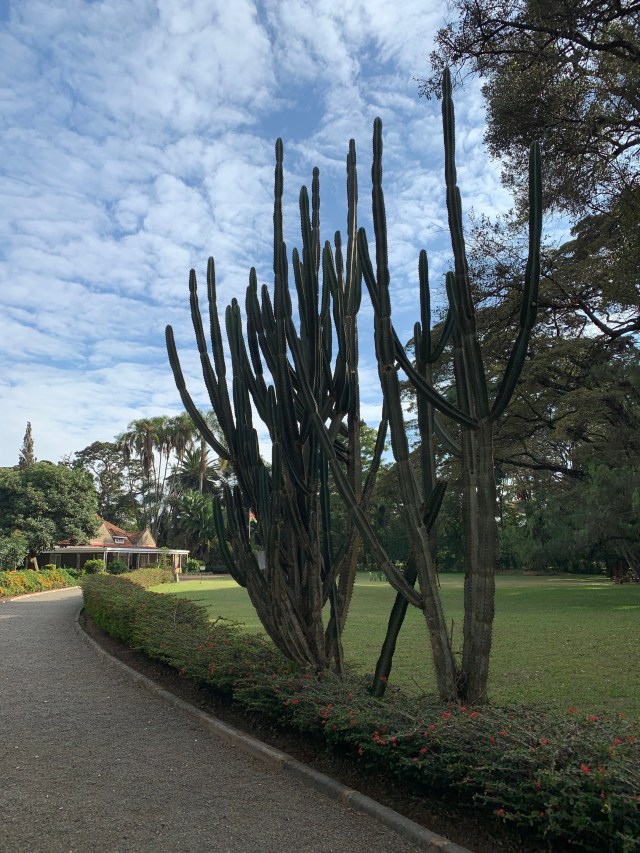It is hard to explain the impact that Karen Blixen had on the city of Nairobi and Kenya in general. The Baroness is best known around the world for her autobiographical story of her time in Africa titled Out of Africa as well as the movie with the same name. To the people of Kenya, she is known for providing healthcare to the people and providing inspiration to the women of Kenya. Although the book and movie romanticize her time in East Africa, the story and her life were rather tragic. The museum, which is the house she lived in and the gardens that surround it, is the location of their failed coffee plantation and features some of the farm equipment as well as photographs of the people in Karen’s life. There is also some memorabilia from the movie as it was filmed on location in Africa.



Photographs are not allowed to be taken from within the museum, but even if you haven’t seen the movie, it is quite interesting. The suburb where the museum resides is actually named Karen and it is home to the most wealthy houses in Nairobi. Although Karen Blixen only lived in Kenya from 1914 to 1931, her legacy has lasted through until today. Because her husband was frequently gone on hunting safaris, Karen ran the farm and the coffee plantation almost single handedly. Her determination and passion for the people of Kenya is what endeared her to the people that worked and lived on her farm.



The grounds of the farm are quite beautiful and walking around is quite tranquil. The ticket to tour the museum includes a guide who will tell you all about the farm, the house, and the life of Karen Blixen. The house itself was built in 1912 by a Swedish engineer and then bought by Karen and her husband, Baron Bror von Blixen Fincke, in 1917. The house was converted to a museum in 1985 after serving as one of the main locations for the filming of the movie. It took us less than an hour to take the tour and walk the grounds, but for those who are fascinated by the book or the movie, it could take longer.





